Last updated on April 17, 2024
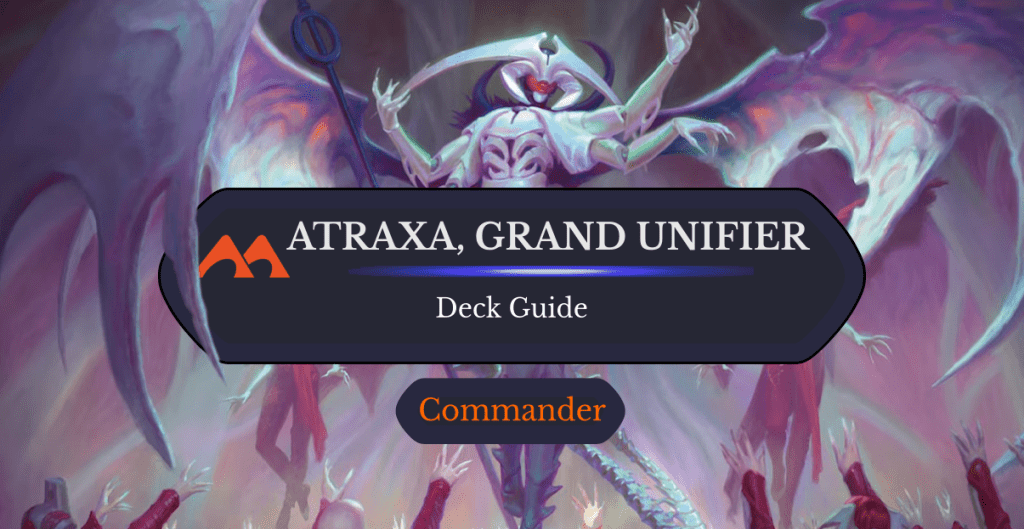
Atraxa, Grand Unifier | Illustration by Marta Nael
Phyrexia: All Will Be One’s release brings of a bunch of new commanders to build around. Atraxa, Grand Unifier notably gives the Phyrexian angel her first Standard release.
Commanders like Atraxa that grant card advantage from the command zone are always powerful. Your commander is already an eighth card in your hand, and commanders that give card draw basically promise you access to more cards over the course of a game.
What makes Atraxa an attractive commander? How can you support this card to make the deck truly tick? Let’s get to it!
The Deck
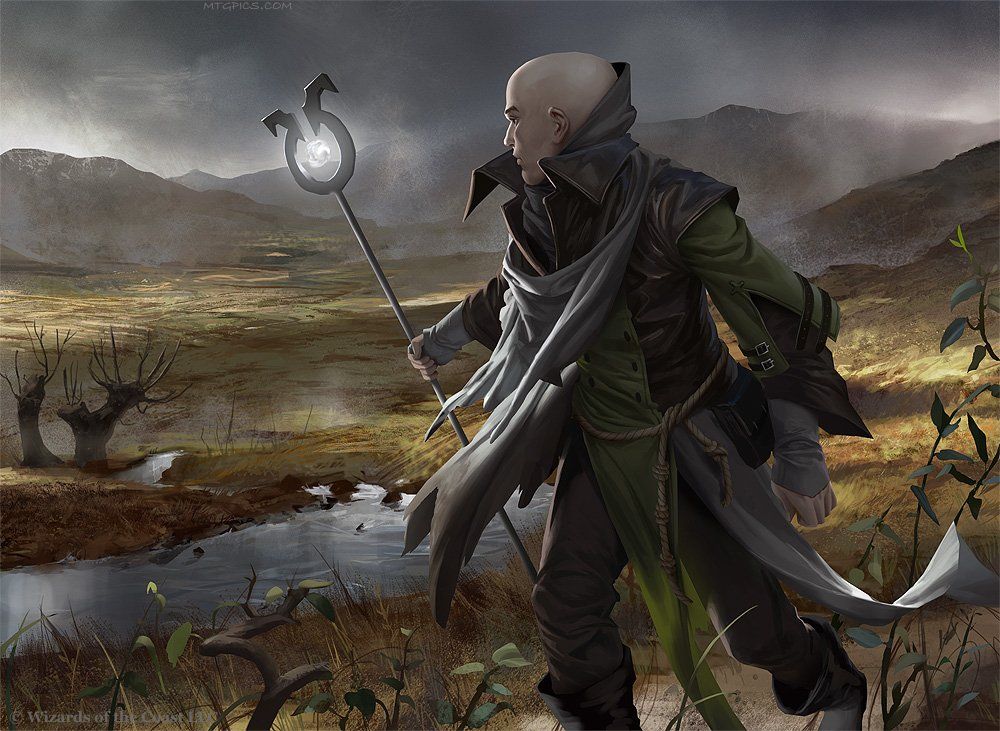
Avacyn's Pilgrim | Illustration by Jana Schirmer & Johannes Voss
Commander (1)
Planeswalkers (6)
Ashiok, Dream Render
Ashiok, Nightmare Weaver
Dovin, Hand of Control
Narset, Parter of Veils
Teferi, Time Raveler
Ajani, Sleeper Agent
Creatures (23)
Avacyn's Pilgrim
Birds of Paradise
Elves of Deep Shadow
Esper Sentinel
Noble Hierarch
Charming Prince
Collector Ouphe
Drannith Magistrate
Lavinia, Azorius Renegade
Paradise Druid
Spirit of the Labyrinth
Sylvan Caryatid
Thalia, Guardian of Thraben
Kambal, Consul of Allocation
Kunoros, Hound of Athreos
Moon-Blessed Cleric
Opposition Agent
Orzhov Advokist
Skyclave Apparition
Thalia, Heretic Cathar
Notion Thief
Windborn Muse
Teferi, Mage of Zhalfir
Instants (11)
An Offer You Can't Refuse
Ephemerate
March of Otherworldly Light
Miscast
Nature's Claim
Path to Exile
Swords to Plowshares
Delay
Despark
Dovin's Veto
Ghostly Flicker
Sorceries (7)
Farseek
Nature's Lore
Three Visits
Cultivate
Kodama's Reach
Vindicate
Bring to Light
Enchantments (8)
Authority of the Consuls
Blind Obedience
Ground Seal
Aura of Silence
Ghostly Prison
Nine Lives
Solemnity
Decree of Silence
Artifacts (8)
Grafdigger's Cage
Sol Ring
Arcane Signet
Conqueror's Flail
Mind Stone
Void Mirror
Chromatic Lantern
Knowledge Pool
Lands (36)
Ash Barrens
Brokers Hideout
Canopy Vista
City of Brass
Command Tower
Evolving Wilds
Exotic Orchard
Fabled Passage
Forest x3
Grand Coliseum
Indatha Triome
Island x2
Obscura Storefront
Path of Ancestry
Plains x5
Reflecting Pool
Scattered Groves
Spara's Headquarters
Swamp x2
Thriving Grove
Thriving Heath
Thriving isle
Thriving Moor
Vivid Creek
Vivid Grove
Vivid Marsh
Vivid Meadow
Zagoth Triome
What could be more fitting of New Phyrexia’s posterchild than a deck filled with stax? As the Phyrexians seek dominion over the Multiverse, this deck lets you impose your will across the table and ensure that they play by your rules while cutting out any dissenters.
This is a fairly standard stax deck that looks to use a variety of effects on artifacts, creatures, and enchantments to slow the game down and win through combat damage. There are also a couple prison elements mixed in. The deck takes a bit of a toolbox approach with a lot of answers to a variety of threats, so let’s get to examining those!
The Commander
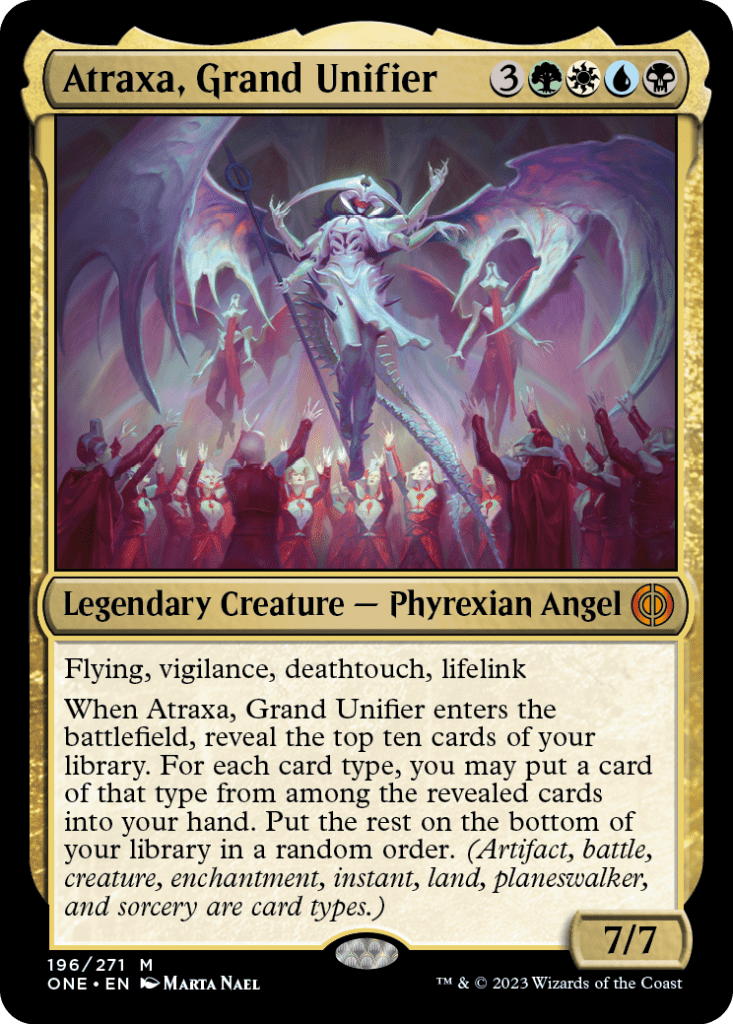
Your EDH table will find unity under Atraxa’s command. Atraxa offers this deck enormous card advantage: Atraxa, Grand Unifier enters the battlefield and draws up to eight cards, though four or five is a more realistic number. The odds of drawing fewer than three are also pretty small since you get to pick from 10 cards.
Grand Unifier also benefits from putting the cards right into your hand. This keeps your card advantage safe from opposing stax effects like Alms Collector or Notion Thief. Getting your choice of cards is also absurd value. Atraxa is basically a tutor that lets you search through the top third or so of your library with a couple of flickers.
Atraxa, Grand Unifier is also a massive stat stick. It has a lot of power and keywords for its cost and ability. It’s both card advantage and the deck’s best beater to end the game. The combination of deathtouch and flying means it’s hard (if not impossible) for most decks to line up profitable blocks. Vigilance and lifelink work great as defensive abilities, so it’s hard for other decks to race you.
Atraxa makes a great commander for this shell because of the card advantage and selection. One of the worst things that can happen in a toolbox-y deck is failing to find the card you need when you need it. Atraxa, Grand Unifier doesn’t promise hits, but it makes it easier to find your silver bullets.
Anti-Search Cards
Letting your opponents search their libraries for cards is a risky deal. You don’t want them to find their wincon, so here are got a few ways to stop them.
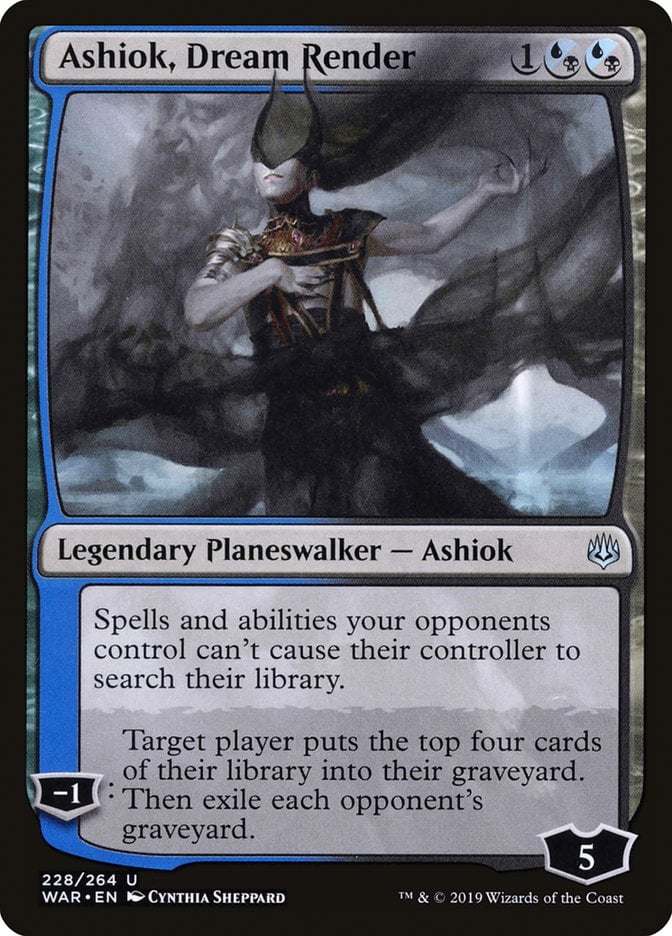
Ashiok, Dream Render just stops your opponents' from searching their library at all.
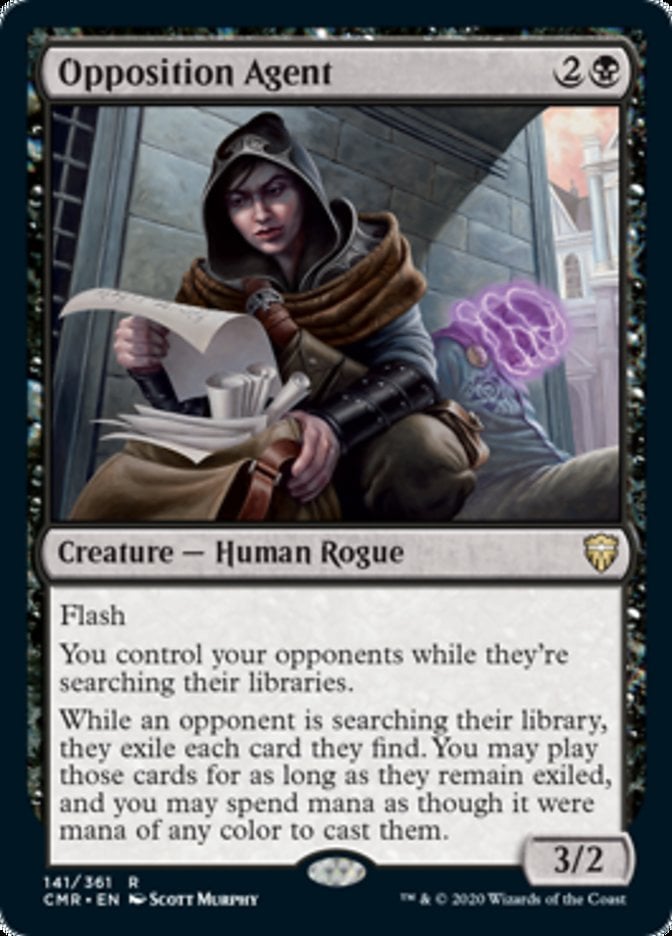
Opposition Agent takes that a step further by letting you control opponents and steal their cards while they search.
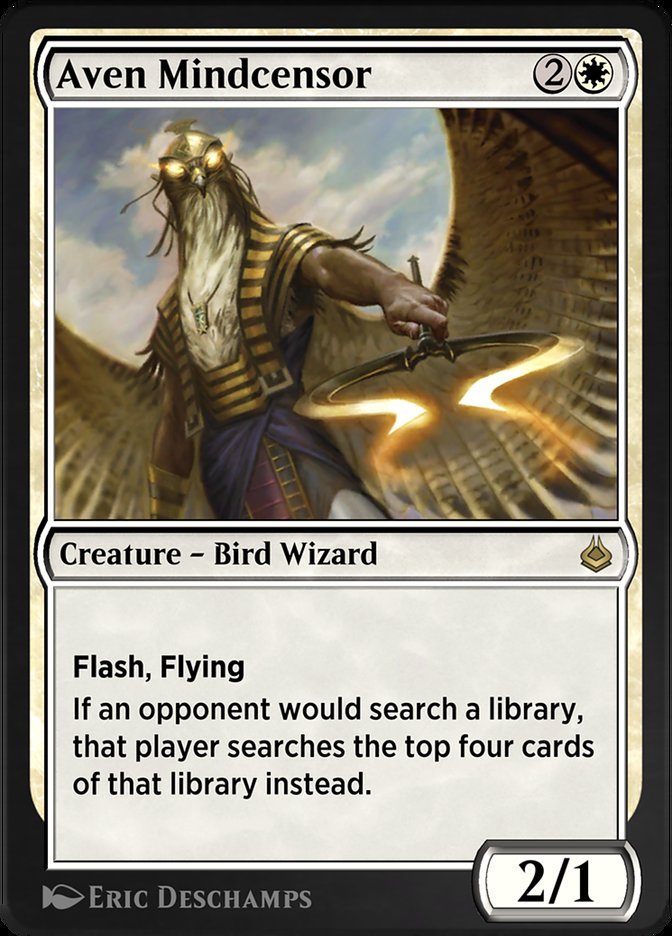
You can also limit your opponents' search potential with Aven Mindcensor. The Mindcensor and Agent are especially useful because you can flash them into play in response to a fetch land getting cracked, potentially Strip Mine-ing an opponent.
Anti-Draw Cards
Drawing isn’t as scary as tutoring, but you still don't want your opponents doing it.
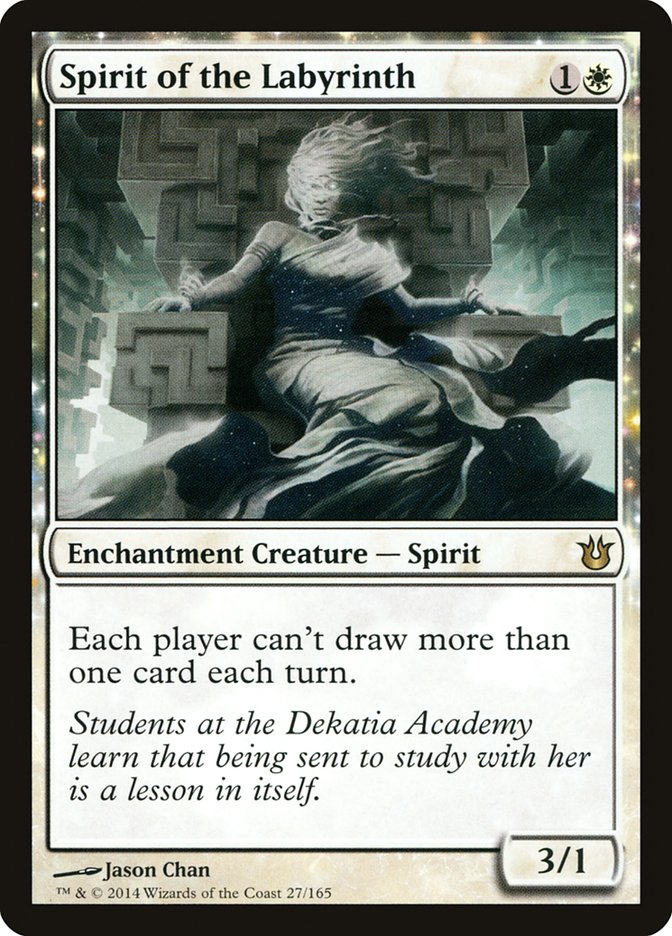
Spirit of the Labyrinth keeps the table honest by only allowing each player to draw one card. You don’t have to worry about that since Atraxa puts cards directly into your hand.
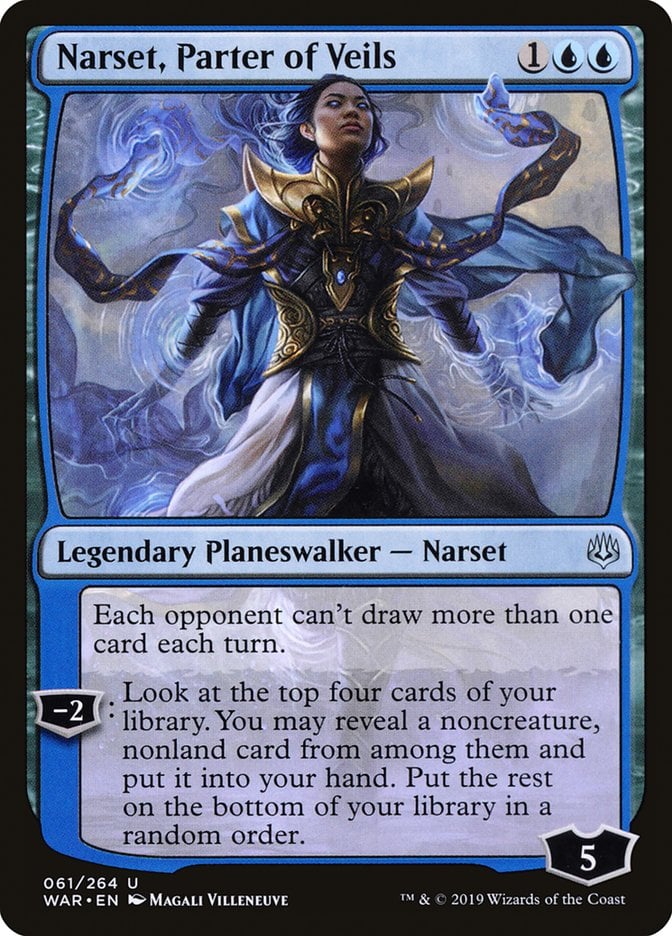
Narset, Parter of Veils is a little less honest since it only imposes the card draw limit on your opponents and can generate card advantage itself.
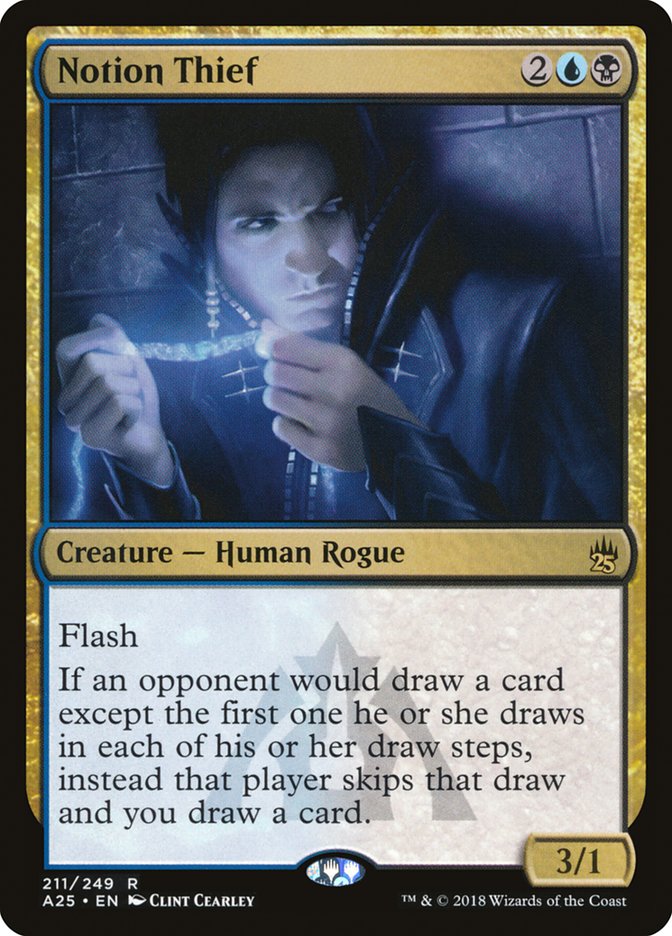
Notion Thief turns your opponents' card draw into your own.
Artifact Hate Cards
Artifacts are good, so you should probably stop them too.
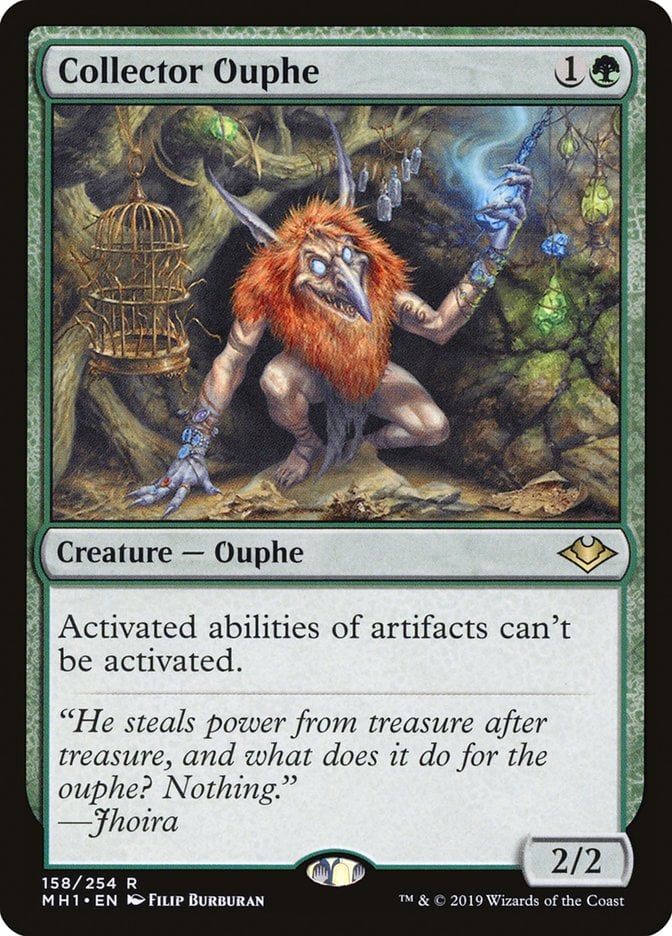
Your ramp package is primarily land-based, letting you play Collector Ouphe with minimal drawback and maximum punishment for opponents who rely on Treasures and mana rocks.
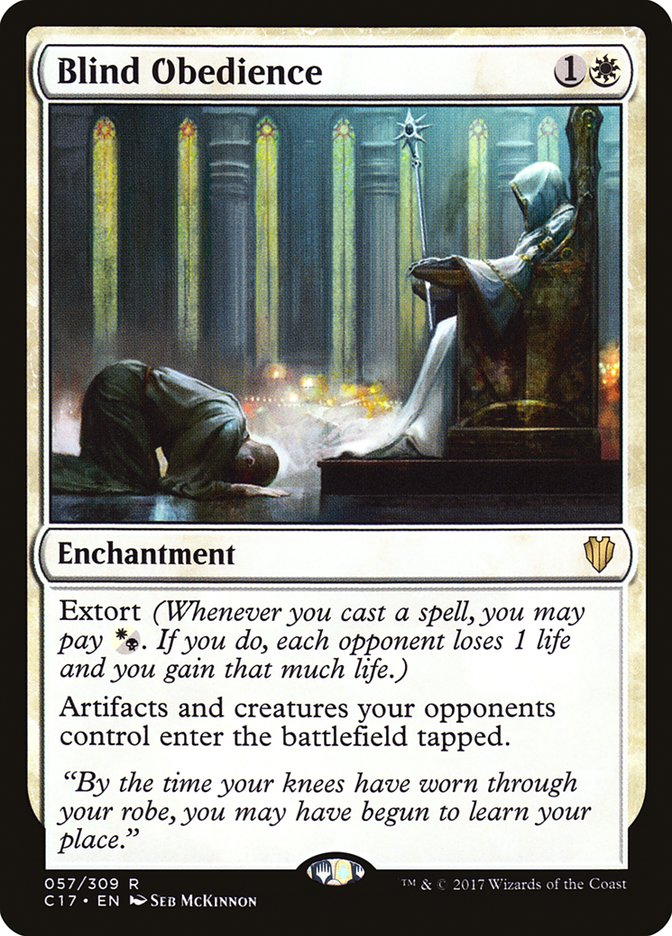
Blind Obedience also punishes Treasure and Displacer Kitten shenanigans while making it easier for you to attack.
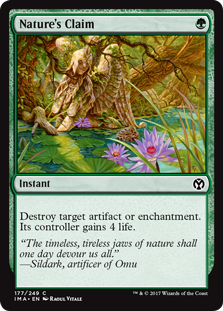
Nature's Claim lets you answer problematic enchantments and artifacts.
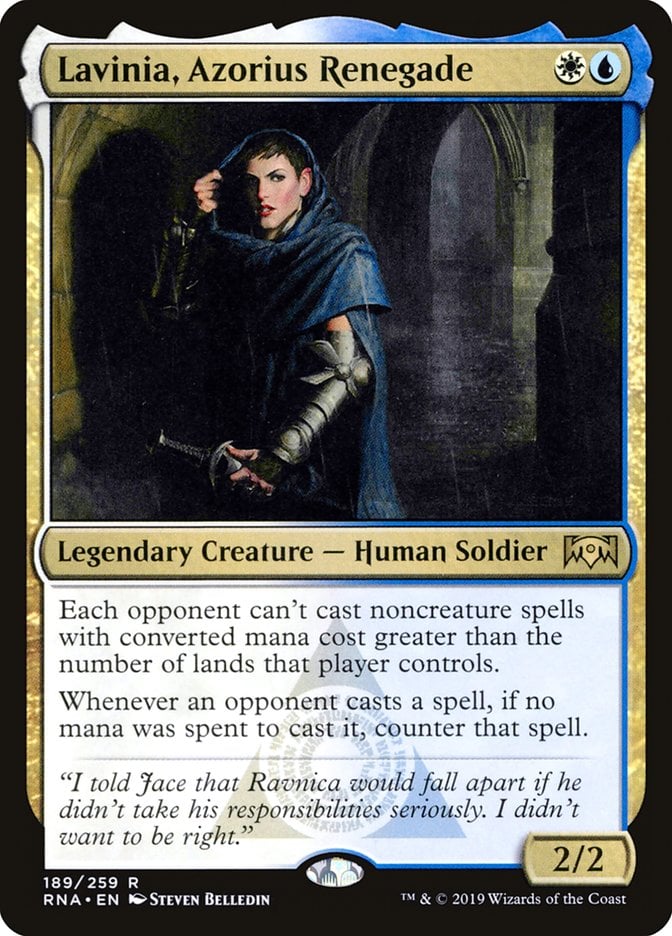
Lavinia, Azorius Renegade can also loosely punish opponents more interested in artifact ramp than land drops.
Counter Protection
This deck has a handful of its own counterspells, but other ways to stop opponents from countering your spells are important with such an expensive commander.
Teferi, Time Raveler and Teferi, Mage of Zhalfir both prevent your opponents from playing anything at instant speed to protect Atraxa.
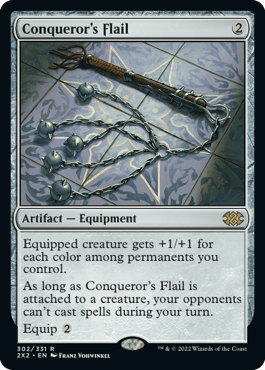
Conqueror's Flail also stops counterspells while providing temporary protection from removal spells on your turn. Bonus: equipping the Flail to Atraxa gives your commander enough power to two-tap opponents with commander damage.
Graveyard Protection
Things in the graveyard should stay in the graveyard. This could also be thought of as protection from the graveyard. It's a different kind of protection when you want to use what's in the graveyard.
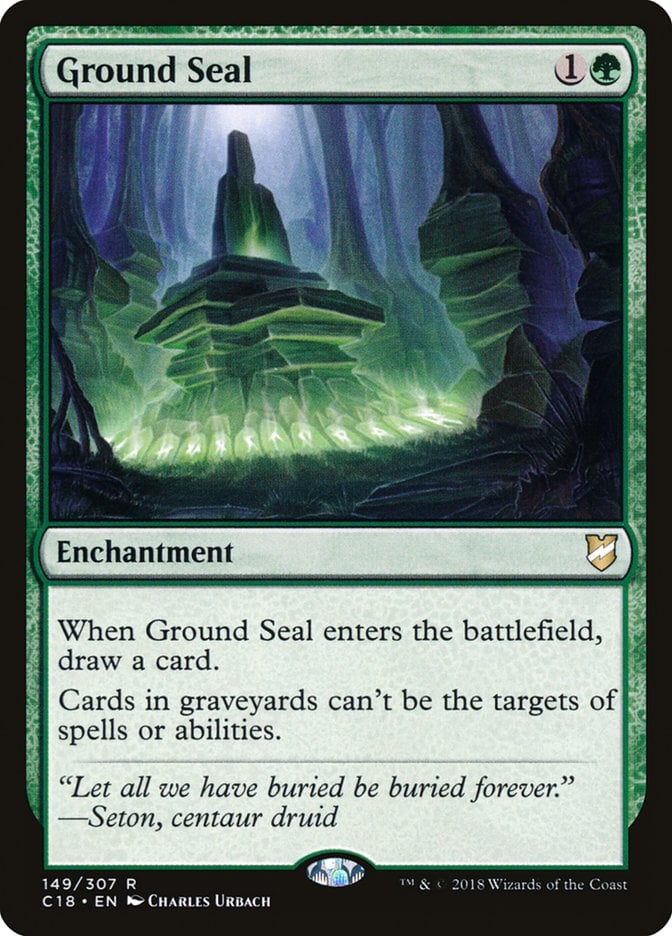
Ground Seal replaces itself and shuts off most reanimation and recursion abilities.
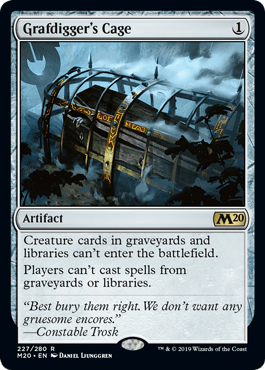
Grafdigger's Cage provides a similar effect while stopping cards like Green Sun's Zenith from letting your opponents cheat creatures into play from the library.
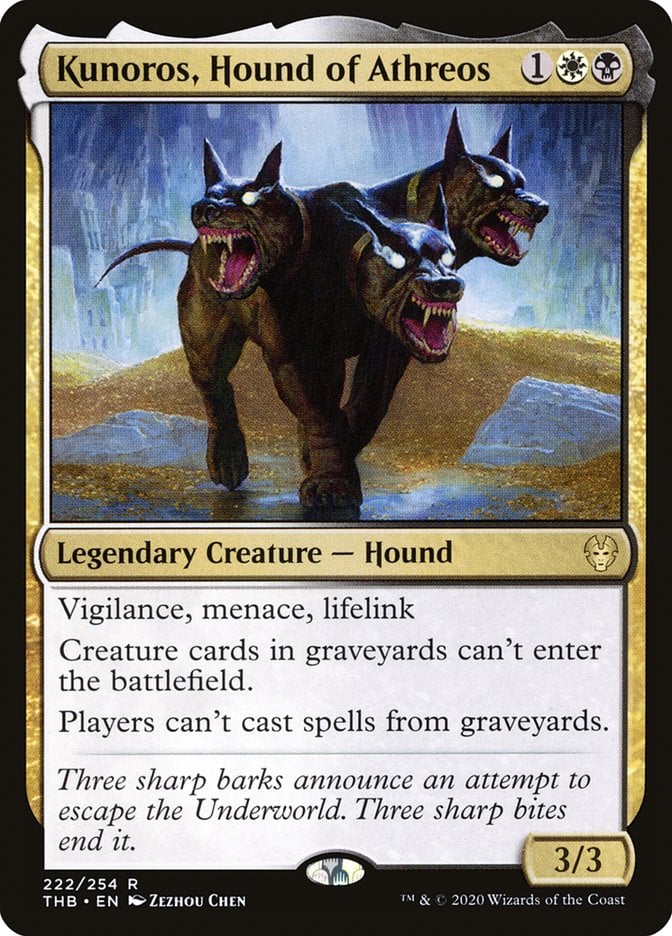
Kunoros, Hound of Athreos stops reanimation while shutting down flashback spells and providing some decent stats on a cheap body.
Taxes! Taxes! Taxes!
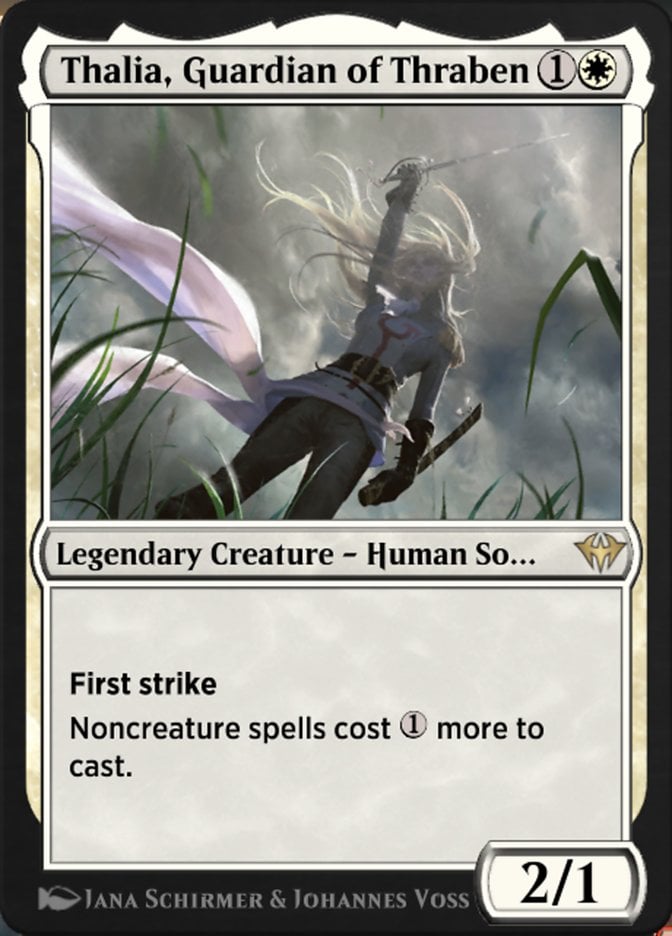
Thalia, Guardian of Thraben might be the most iconic taxing effect in the game, and it’s here to slow your opponents down.
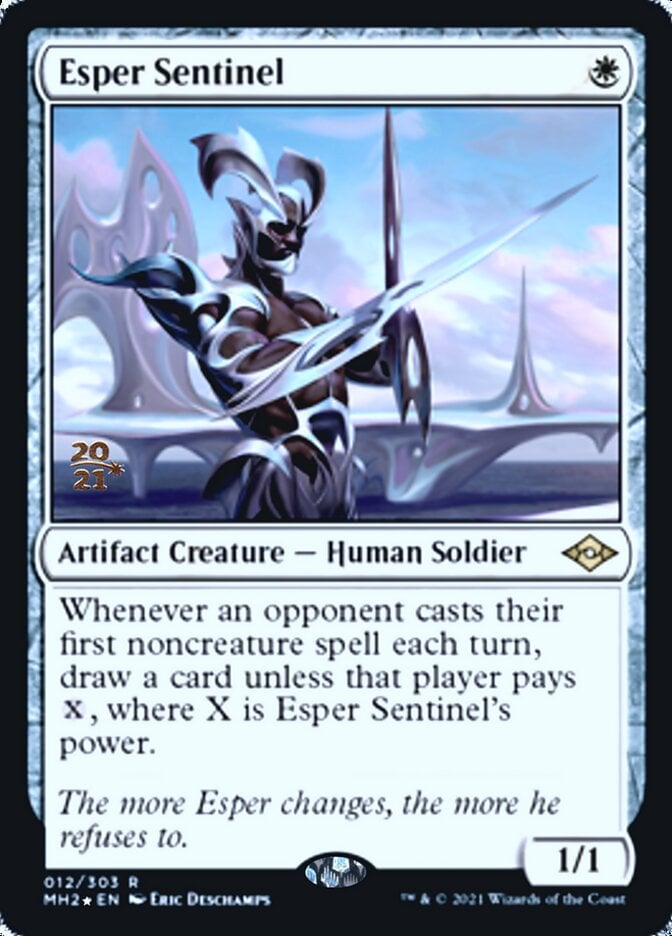
Esper Sentinel also taxes your opponents a bit while potentially providing you with card advantage.
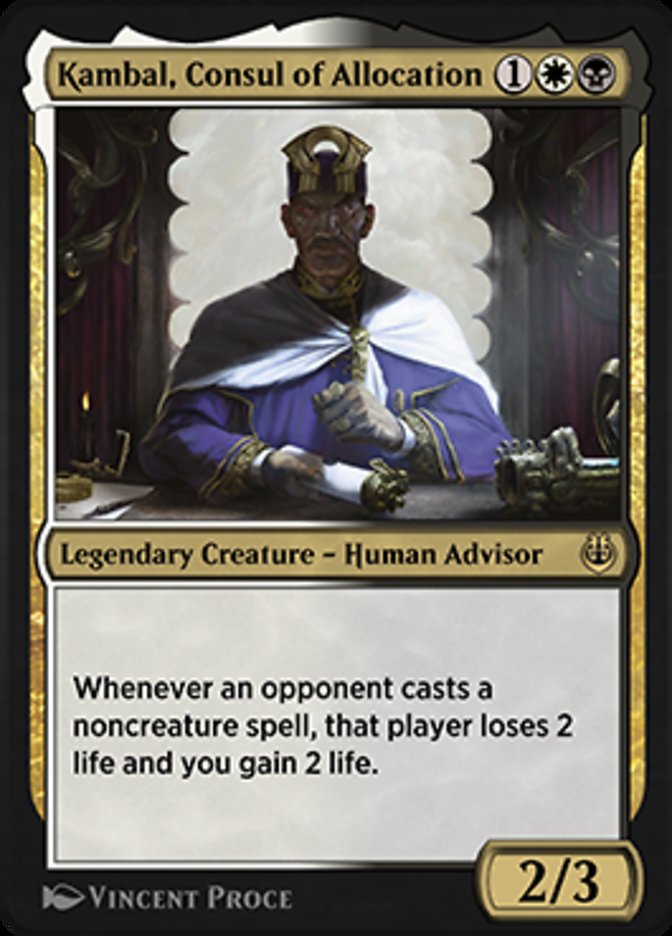
Kambal, Consul of Allocation doesn’t make your opponents pay mana, but taxes their life totals instead.
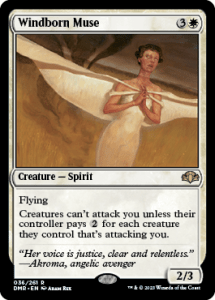
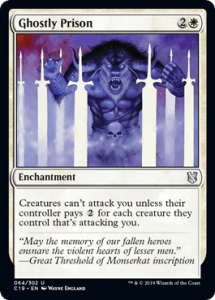
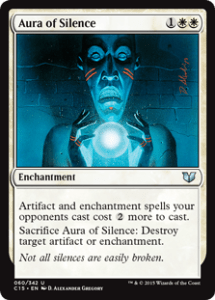
Windborn Muse and Ghostly Prison both make it hard for your opponents to attack you and play spells in the same turn, while Aura of Silence puts a damper on artifact- and enchantment-focused decks.
Flicker Spells
This deck doesn’t have a ton of flicker effects, but they get out of hand quickly by netting you multiple Atraxa triggers.
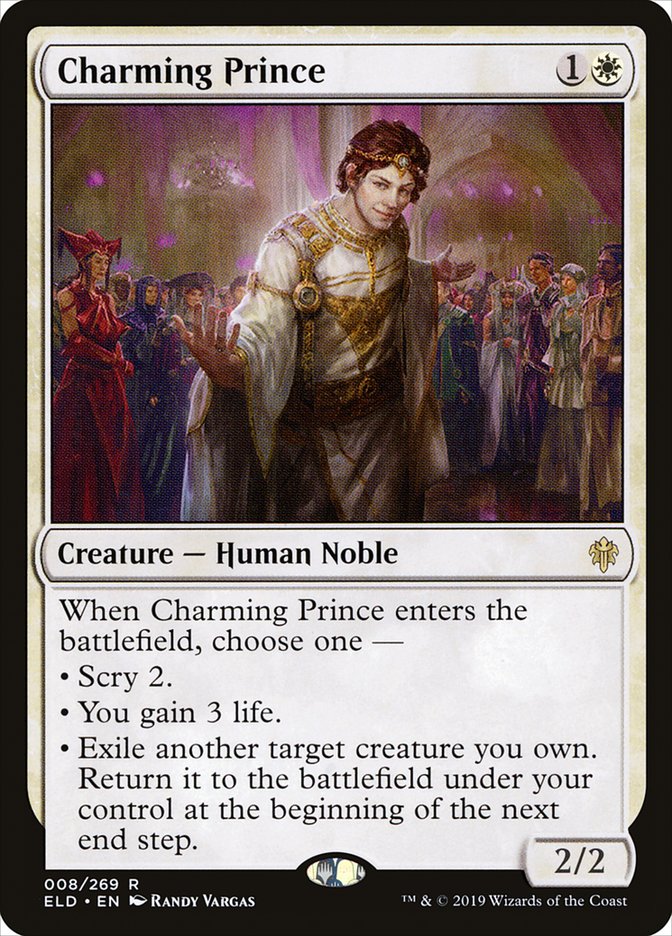
Charming Prince gives you reasonable value out of a 2-drop while flickering late game.
Ghostly Flicker and Ephemerate give you an abundance of flickering value and can be used to protect important cards from spot removal.
Interaction
You can’t play EDH if you don’t interact with your opponent’s spells. Most of your creatures already interact with opponents in some way, so you can run a few less interactive spells than normal.
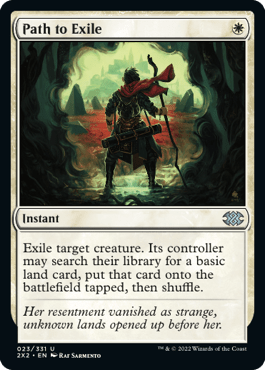
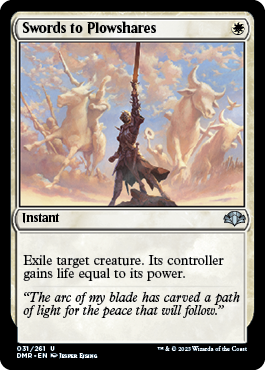

Path to Exile, Swords to Plowshares, and March of Otherworldly Light give you access to a handful of spot removal spells.
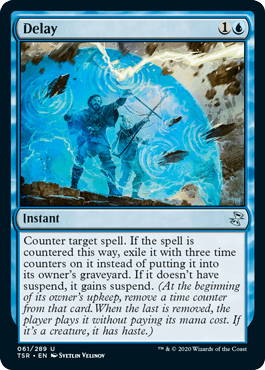
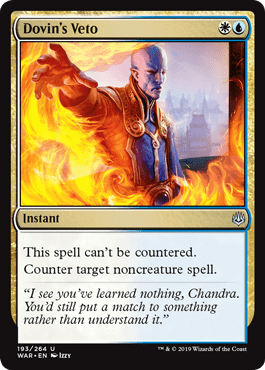
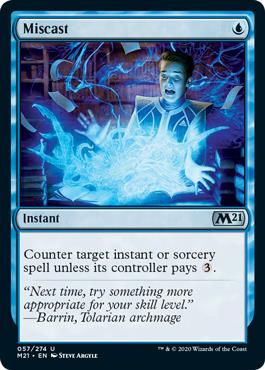
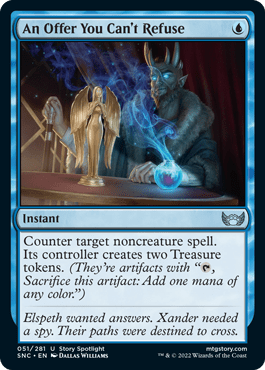
Delay, Dovin's Veto, Miscast, and An Offer You Can't Refuse let you interact with the stack for as little mana as possible. These are mostly here to protect Atraxa or lock pieces, so they have to be efficient.
The Mana Base
This deck’s ramp package is super important. It doesn't just accelerate you into an early Atraxa, it fixes the deck’s mana. It’s heavily land- and creature-based to avoid the pitfalls of an all-artifact ramp deck.
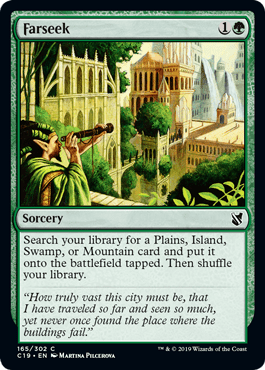
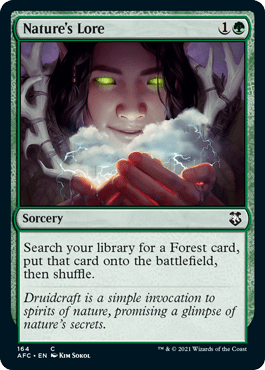
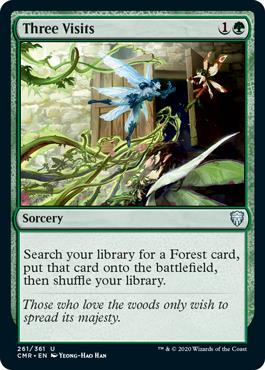
Farseek, Nature's Lore, and Three Visits are the all-stars here, fetching Triomes from the deck for perfect mana.
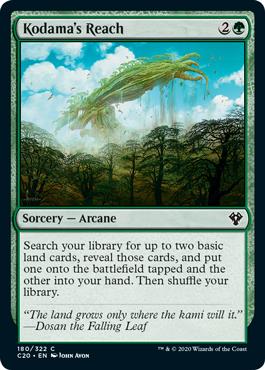
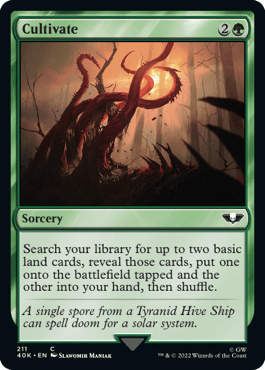
Kodama's Reach and Cultivate also pull double duty with multiple colors worth of fixing, and promise a few extra land drops.
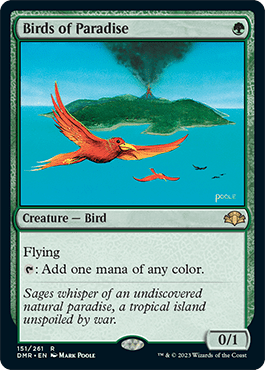
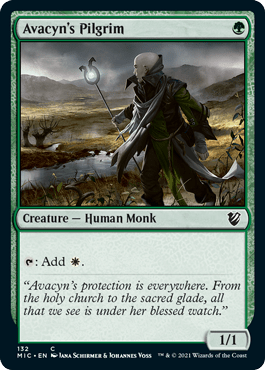
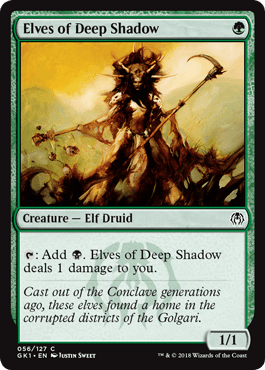
The creature-based ramp is a little more fragile, but it’s also faster. There’s a variety of 1-mana dorks that fix for multiple colors of mana in Birds of Paradise, Avacyn's Pilgrim, and Elves of Deep Shadow.
There are 2-mana options to provide a plethora of colored fixing in Paradise Druid and Sylvan Caryatid.
Your mana base is a bit slow beyond your ramp package. It focuses largely on lands that come into play tapped but produce multiple colors of mana, like Triomes and thriving lands.
The price of speed gives you a pretty consistent mana base that won’t give too much trouble with colors, especially if you’re careful about what colors you fetch with cards like Fabled Passage and Ash Barrens. You’ve got a fairly high basic land count to help facilitate those cards and some of your ramp spells.
This deck doesn't really have utility lands. Four colors demand a lot of mana fixing, so the emphasis is on the multicolored lands over colorless lands with abilities.
The Strategy
This deck’s got a pretty simple strategy: slow your opponents down and win with combat damage. One of the keys to playing this deck is sequencing, especially around the slower mana base. You also need to sequence your threats and answers correctly so that your opponents don’t have any breathing room between your stax pieces. You want to pressure their gameplan with your effects, and their life totals with your creatures.
Another super important aspect of this deck is how you mulligan your opening hand. Some amount of ramp in the opener is a must-have for this deck, both for acceleration and fixing. You also need the right stax pieces. You should take stock of what your opponents are doing based on their commanders and use that to inform what hands you keep. For example, a hand that’s only got anti-draw pieces probably won’t do much if your opponents are on three different flavors of graveyard decks. Your opening hand can really decide the outcome of a game.
In general, the game plan is to slow down your opponents, deploy Atraxa for a burst of card advantage, and then establish one of the locks to secure victory in the name of Phyrexia.
There’s also something to be said about tweaking the deck to your meta. The more specific your stax deck is, the stronger it will be; if you know that you’re going to play against a bunch of spellslinger decks, you might want to find room for some Rule of Law effects like… well, Rule of Law or Archon of Emeria. Cards like Rest in Peace and Ravenloft Adventurer can also help against graveyard decks, and so on. This deck looks to slow down a broad range of strategies, which could make it venerable to a focused table.
Prison Locks
Everybody loves prison, right? Well, it doesn’t matter if they do because you'll lock them down anyway. There are three main locks this deck produces.
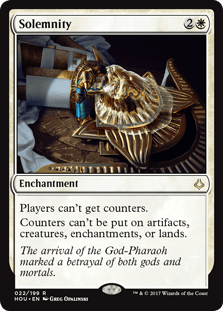
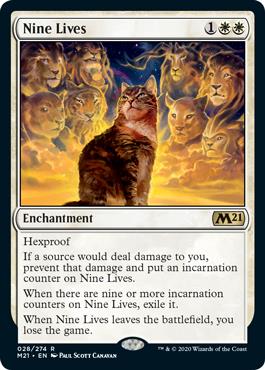
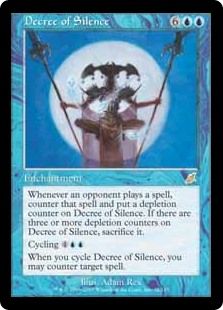
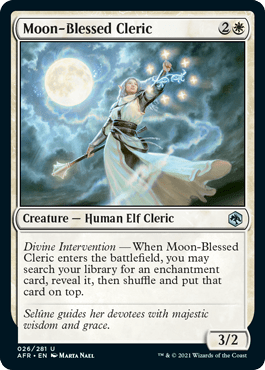
The first isn’t a lock per se, but more of an insurance policy. Solemnity prevents counters from going onto creatures, enchantments, artifacts, and players. This can be a stax piece against specific decks like infect or +1/+1 counters, but you’re more interested in what happens with Nine Lives in play.
Nine Lives prevents you from taking damage, instead putting counters on itself each time damage is prevented. It exiles itself once it has nine counters, causing you to lose the game. With Solemnity in play, it just… won’t get counters. You’re not in danger of Nine Lives exiling itself with its own ability, so you just don’t take damage. Even if Solemnity gets removed after a few turns, it takes a while to rack up nine counters.
The next lock also requires Solemnity and is much more of a lock. Decree of Silence counters your opponent’s spells while building up depletion counters for each spell countered and sacrificing itself after getting three counters.
Like the Nine Lives combo, Solemnity just doesn’t let Decree of Silence build up its counters. Having both cards on the battlefield counters any spell your opponents play from any zone. All three of the above cards can also be found with Moon-Blessed Cleric.
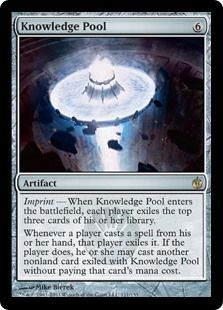
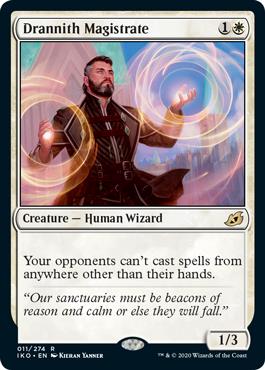
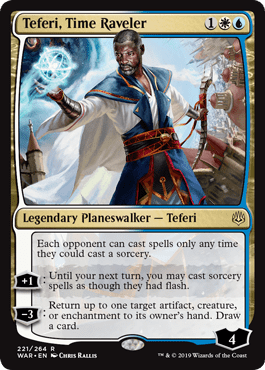
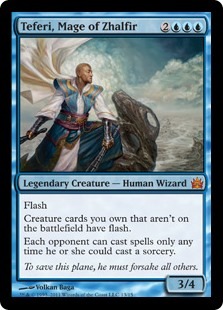
There are also a few ways to lock your opponents out with Knowledge Pool. This combo requires one card from among Drannith Magistrate, Teferi, Time Raveler, or Teferi, Mage of Zhalfir.
Knowledge Pool comes into play and each player imprints the top three cards of their library into exile. Any time they’d cast a spell from their hand, Knowledge Pool exiles that spell and lets them cast a spell from among the three cards already exiled under it. The trigger lets the player ignore timing restrictions, casting the chosen spell at instant speed with the trigger still on the stack.
Except your opponents can’t cast spells at instant speed with either of the Teferis in play. Whatever they cast from their hand just gets exiled. It’s a softer lock since your opponents can still cast spells from their graveyard or command zone.
Drannith Magistrate locks harder than either Teferi, but your opponents can only cast spells from their hand with Magistrate in play. This also shuts off the Knowledge Pool trigger because those spells get cast from exile, and it stops them from using any other zone.
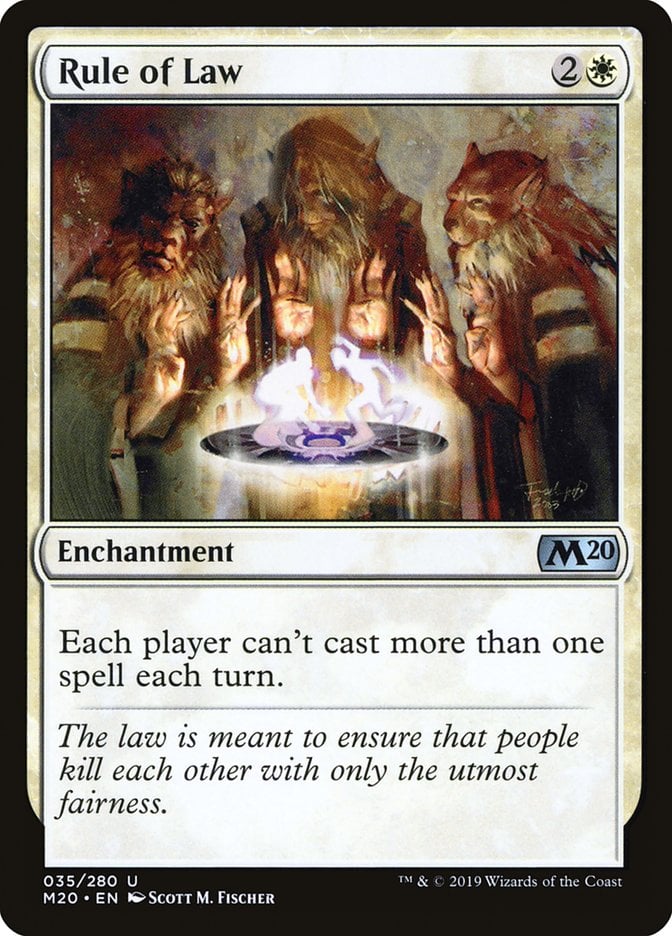
It’s also worth noting that you’d need to take out this lock if you decide to add Rule of Law and similar effects as symmetrical Rule of Law effects also lock you out of the game.
Rule 0 Violations Check
You could argue that this entire deck is a Rule 0 violation depending on how your playgroup feels about stax. At the very least the prison options are worth mentioning, and you might want to have a few sideboard cards handy to exchange for Decree of Silence, Nine Lives, and Knowledge Pool.
Another few cards in the deck that can make players bristle are Drannith Magistrate (who did nothing wrong) and Opposition Agent. This build of Atraxa might not be the deck to break out in a new playgroup, but it could be fun to torment your friends with it for a round or two.
Budget Options
There are a couple expensive cards in this deck.
Opposition Agent could easily be swapped for Leonin Arbiter to save $10 or so. Mystic Remora provides a similar tax-or-draw effect to Esper Sentinel, though it's less permanent. Authority of the Consuls or Blind Obedience can be swapped with the cheaper (but more mana-intensive) Loxodon Gatekeeper.
The mana base also has some expensive cards, especially the Triomes, but it’s hard to trim those without impacting the build. Possible alternatives could be the tapped duals from Dominaria United that have basic land types to allow Farseek and friends to grab them.
Other Builds
Atraxa, Grand Unifier is an incredibly flexible card because its ability is just sheer card advantage. It doesn’t need to go in any particular direction.
A fun alternative build path could be to build a flicker-based deck. All four of Atraxa’s colors have very powerful ETBs, and flickering Atraxa itself is a great value. You only need to flicker Atraxa seven or eight times over the course of a game to see your entire deck.
You could also try to build something a little more niche, like angel tribal with access to all the best angels and ramp in Magic. The most important thing to consider when you’re building Atraxa is the distribution of your card types. If you lean too heavily into one, you might not be able to get the best value from Atraxa’s trigger.
Commanding Conclusion
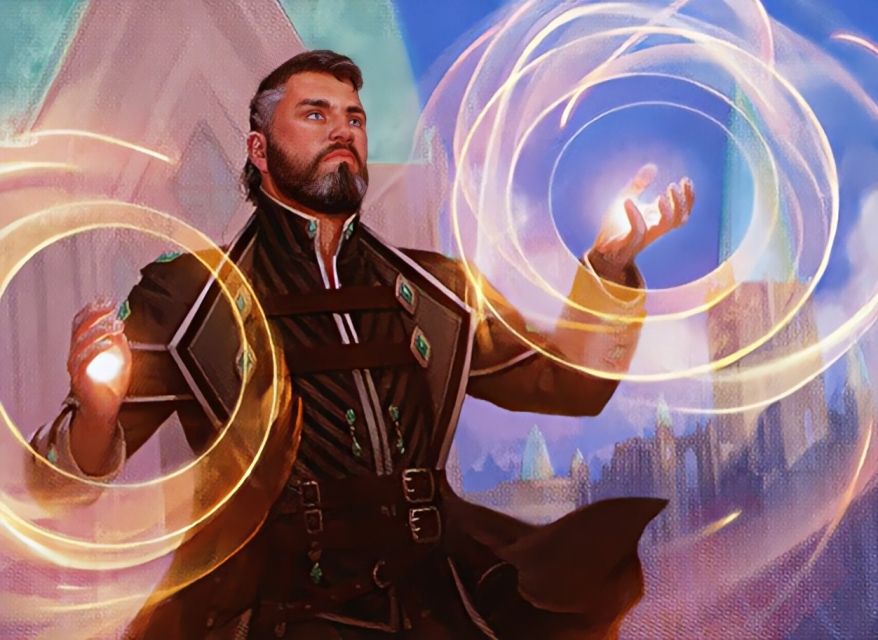
Drannith Magistrate | Illustration by Kieran Yanner
Atraxa stax might seem intimidating, but it's a lot of fun to play. Stax is often overhated in my wholly unbiased opinion, but it’s also not everybody’s cup of tea. And that’s okay! A good Rule 0 conversation can help clear it up, and who knows: maybe you can unite your playgroup beneath the glorious banner of stax after a few games. You could have gone for the popular Atraxa, Praetors' Voice deck, so thank you for sticking through this one.
How would you have built Atraxa, Grand Unifier? What commanders are you looking forward to from Phyrexia: All Will Be One? Let me know in the comments below or on the Draftsim Discord.
Thanks for reading, and see you next time!
Follow Draftsim for awesome articles and set updates: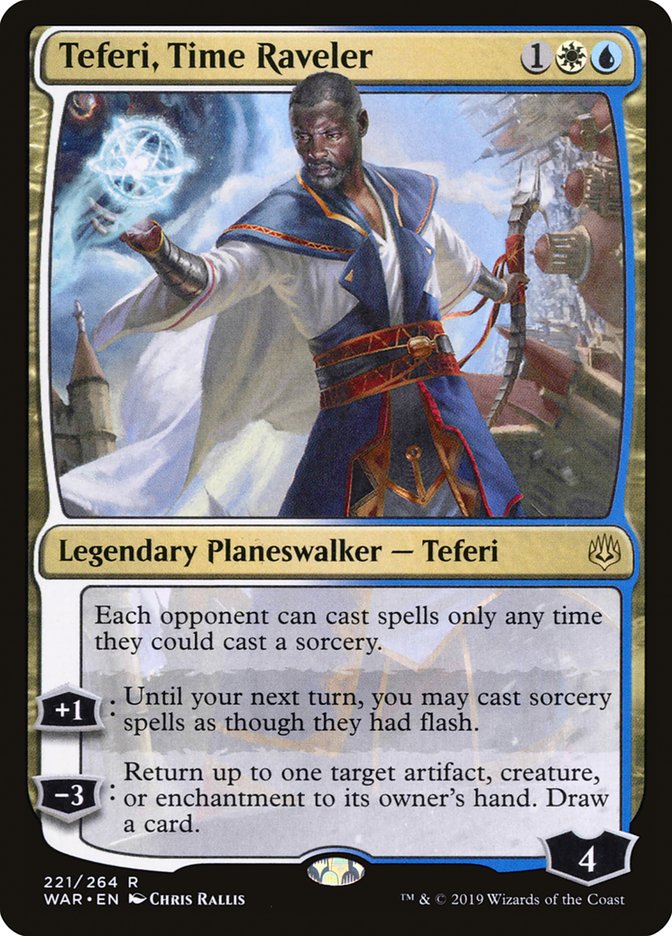
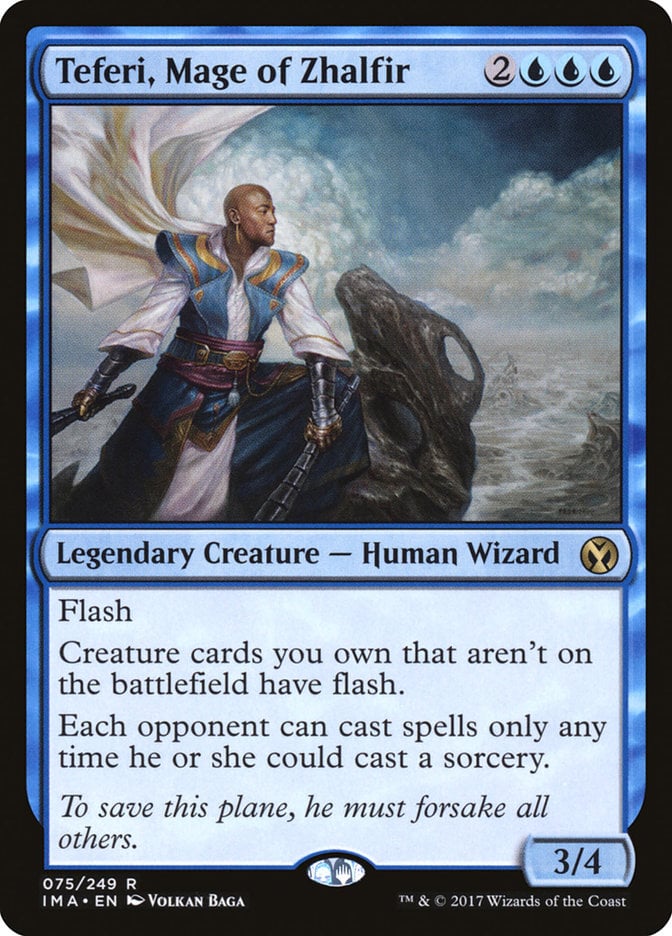
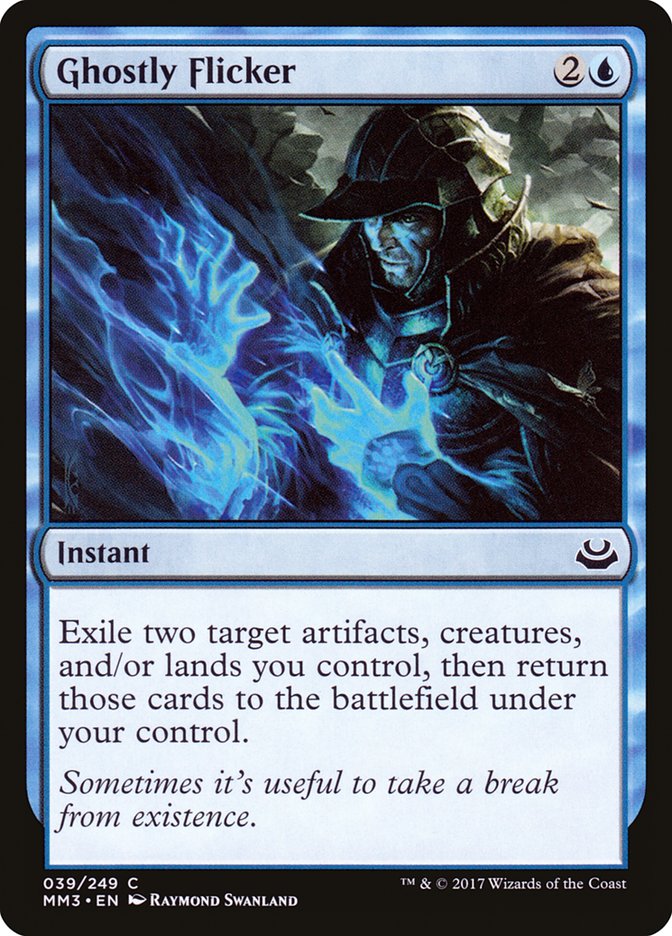
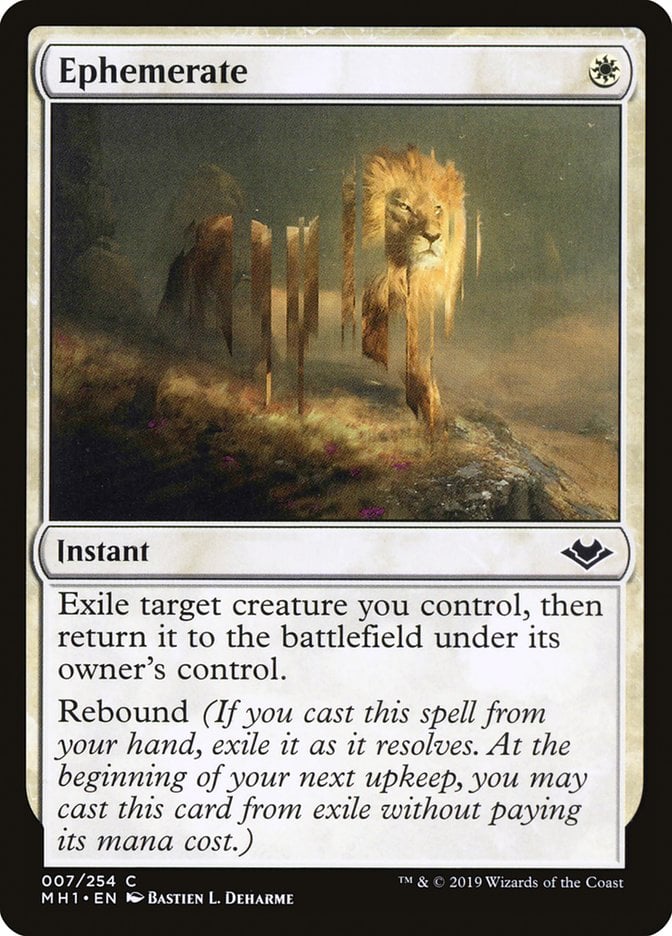
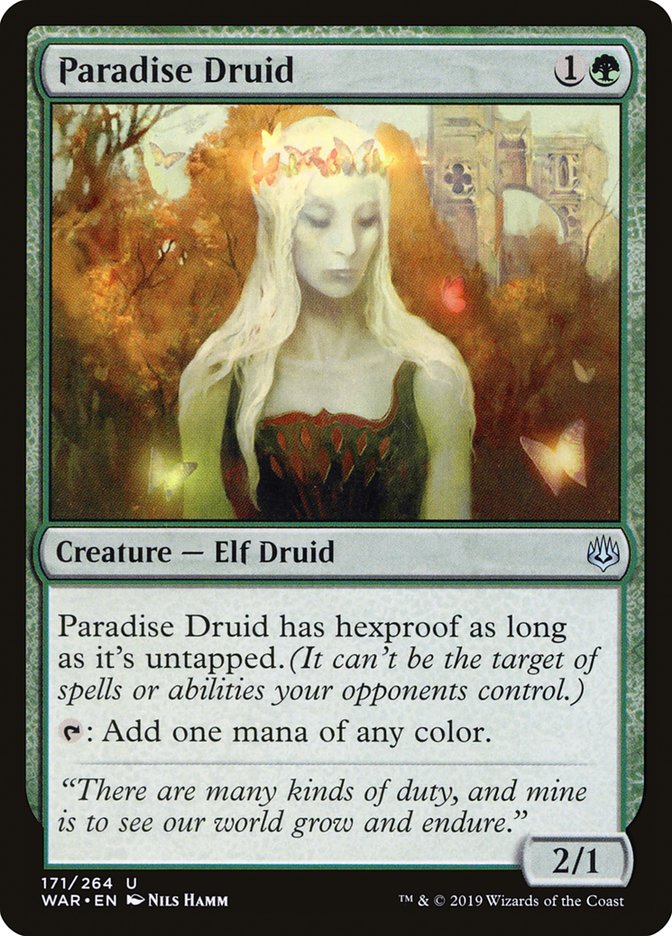
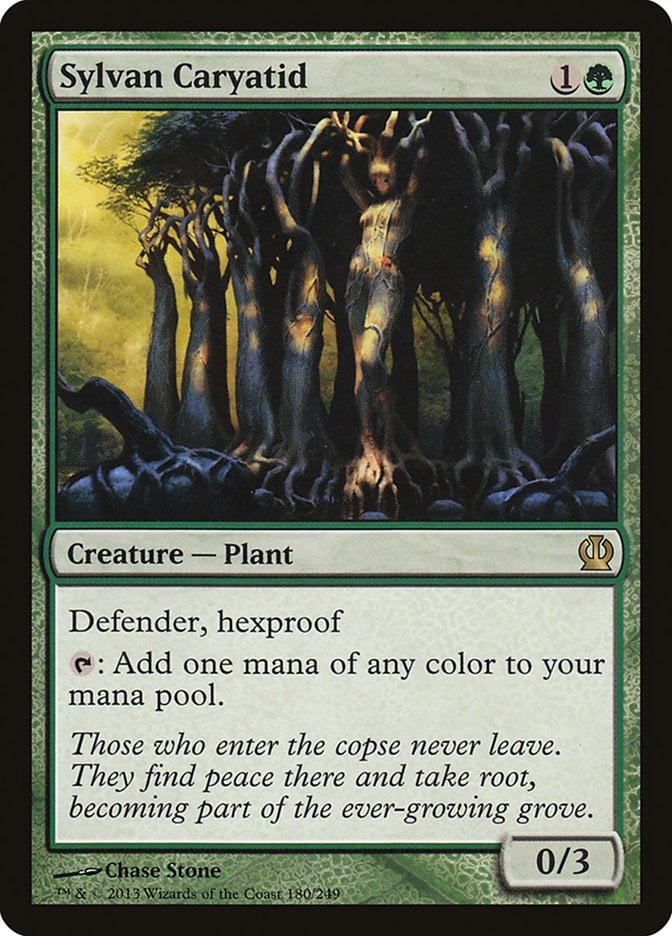
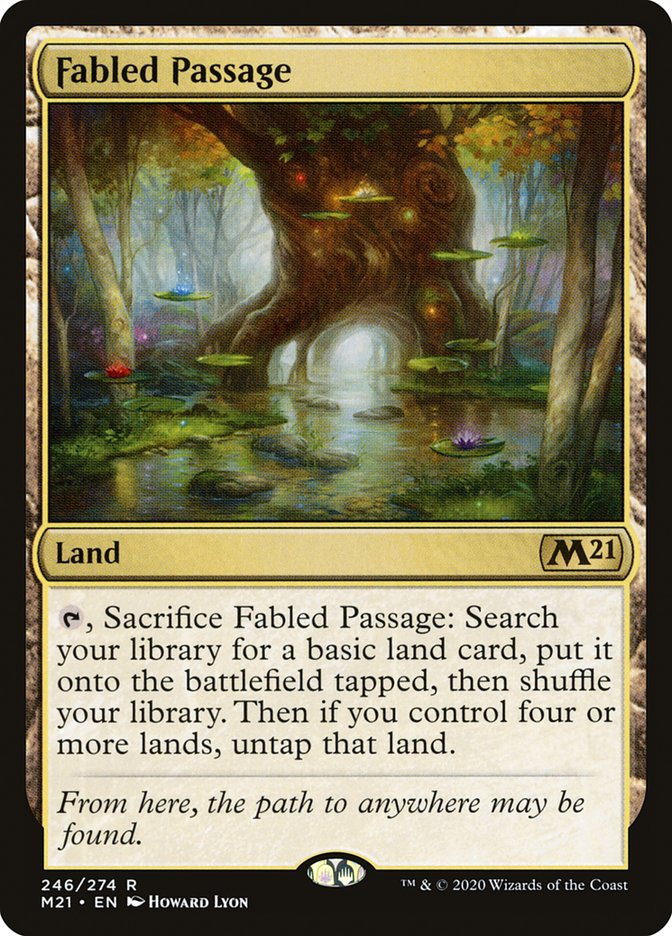
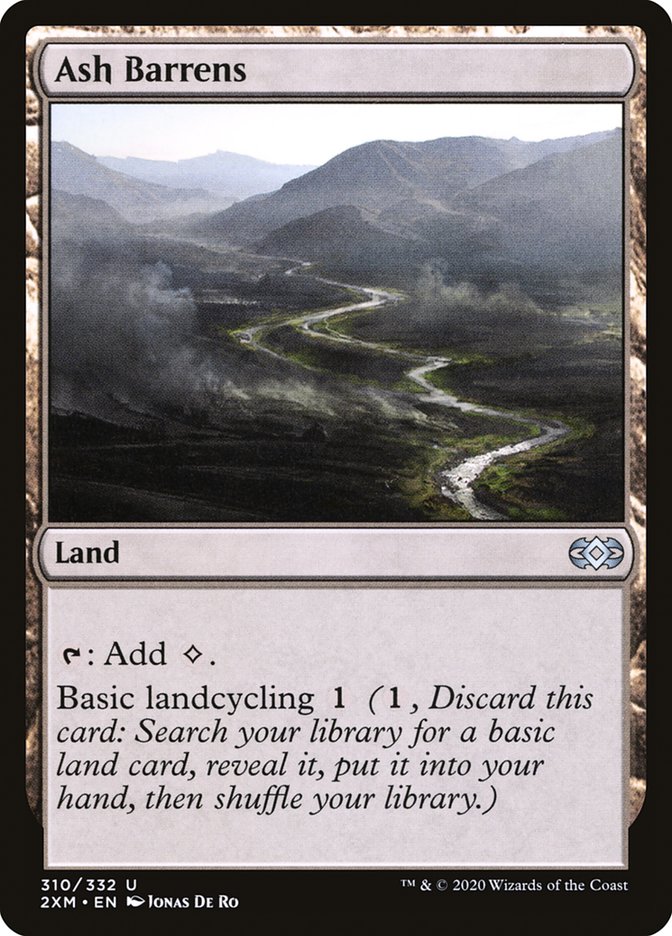
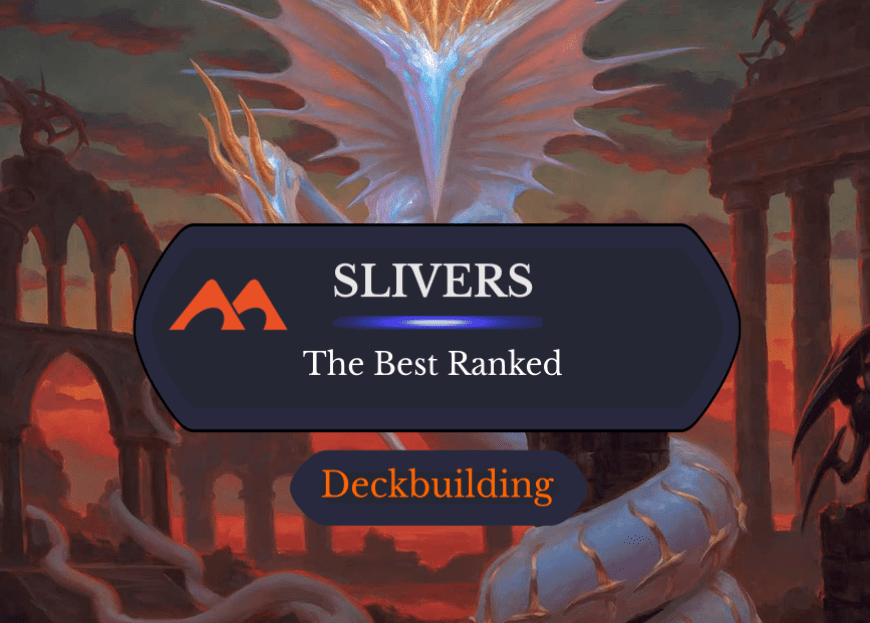
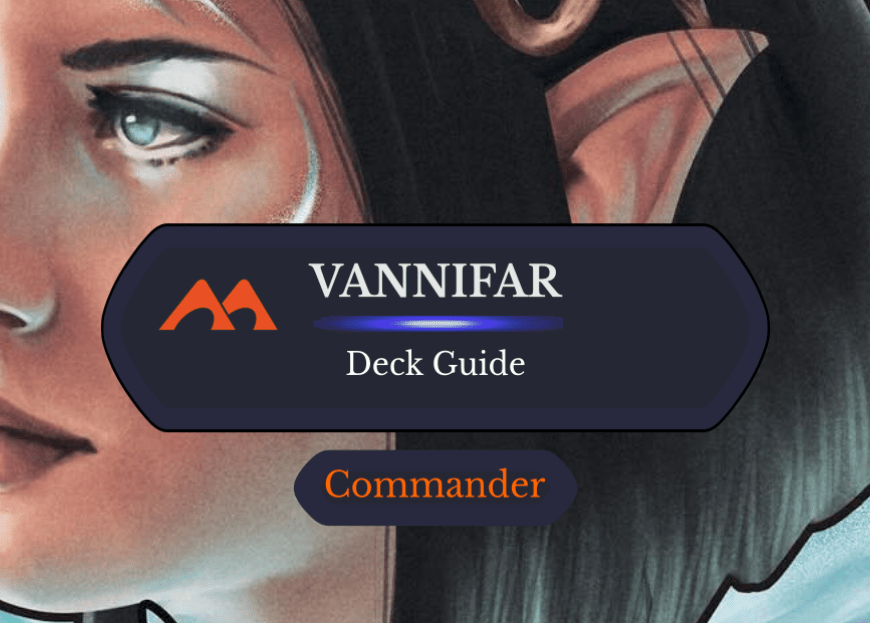
Add Comment